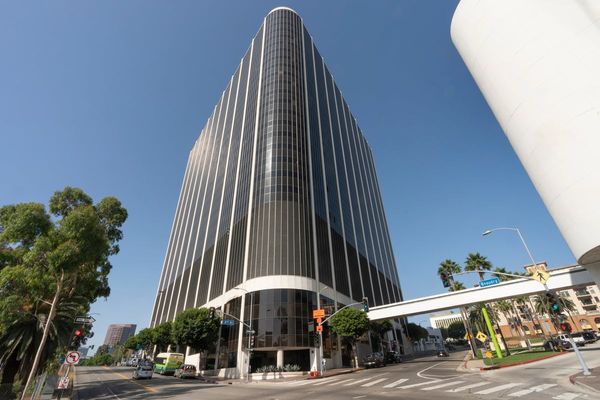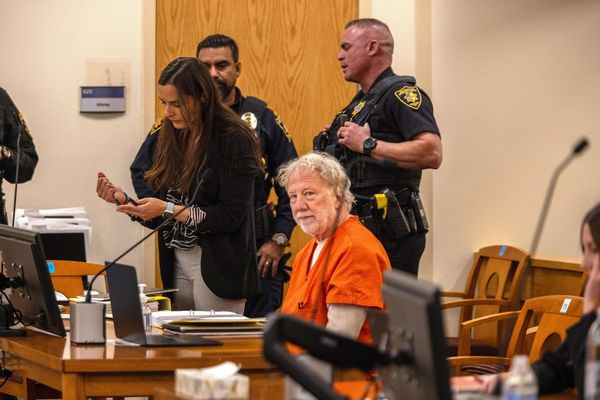A typical night at a dance hall of 1950s Meanjin (Brisbane) would start with a three-piece band playing songs for the Elders. Hosted in The Boathouse by the river, they were multi-generational events populated by Indigenous people in their spiffiest clothes, whether that meant a home-sewn dress or a lime green suit and hat.
As the night wore on the tempo of the music would increase, building up excitement until it was time to leave and the tempo would slow again.
However it wasn't just somewhere to dance: The Boathouse was a place Indigenous people could talk, meet a potential partner (or partner for the night) or simply have a good time.
Under the Aboriginal Protection Act of 1869, Indigenous people were subject to a myriad of restrictions including curfews, exclusion zones, and restrictions on who to socialise with.
The pocket of freedom created by dance halls like those at The Boathouse made them an important gathering place, and a fertile ground for community resistance.
It was this intersection that served as the inspiration for playwright and director Wesley Enoch's 1999 musical The Sunshine Club.
Written in collaboration with composer John Rodgers, the show kickstarted the careers of artists who are now household names, including Ursula Yovich, Wayne Blair and Elaine Crombie.
This month The Sunshine Club returns to Queensland Theatre 23 years after it debuted, in a joyful celebration of resilience.
Remembering our history
"The Sunshine Club, at its heart, is a joyful celebration of our resilience of our lives and of the Elders and what they've given us," says Enoch.
Although the titular club is fictitious, he drew inspiration from 1950s Meanjin.
"Often when you're writing, you're looking for the specific, because if you do it always generic and open, the audience know that it never gets roots. And that's why it's wonderful to have roots here, but it's [the show] actually talking about the whole nation," he explains.
Local audiences will likely recognise 'the cannery' in The Sunshine Club as the Golden Circle Cannery, where a lot of Indigenous people — including the renowned artist Tracey Moffatt — worked.
Another recognisable landmark in the show is the pair of Boundary Streets in the inner city, which run on either side of the Maiwar (Brisbane River).
From the 1840s through to the 1960s (well after segregation laws had been repealed) these streets marked an exclusion zone for Yuggera and Turrbal people.
As Frank Doyle (played by Marcus Corowa) explains in The Sunshine Club, Indigenous people were subject to a curfew that prohibited them from crossing that boundary after dark unless they held an exemption from the Aboriginal Protection Act.
Ironically, Queensland Theatre, where the show has rehearsed, sits just inside the northern boundary of the 'exclusion zone'. It's an uncomfortable truth that Enoch doesn't shy away from.
In the same vein, he admits that as a young theatre-maker he considered Queensland Theatre Company "moribund" and "not for us [Indigenous people]" — only to have his first major commission come from the company, and then eventually go on to become its artistic director.
"I'm almost like the embodiment of The Sunshine Club: you fight against something, and you try to make a difference. Then by making a difference, you then take charge, you take over a bit more," he says.
In the musical, Frank returns from World War II, having fought for freedoms and a sense of equality. When he realises Australia hasn't changed in the way he'd imagined, he sets up an integrated social club.
Enoch says these kinds of clubs were fertile ground for what became the 1967 Referendum because they provided a space for people to talk.
By delving into this era, Enoch rejects white Australia's narrative that this is a "young and lucky" country. Instead he wants to see the full gamut of history presented.
"There's this addiction to being a juvenile, to being an adolescent. When in fact we are Elders, when we think culturally about this landscape," Enoch says.
He's adamant that by forgetting the past, Australia runs the risk of constantly reinventing the wheel. "And it's not even a better wheel."
But The Sunshine Club is not just a story set in post-World War II Australia, it's one that was written 23 years ago.
"In the 90s we were talking about reconciliation, and how important reconciliation was and how people needed to come together. And that [idea of] dancing together became a metaphor for what Black and white Australia could do together," Enoch says.
For this production, the conversation has progressed to sovereignty and ideas of treaty.
"I've changed some lyrics. There's a song in the second act called Mr. Menzies, and [in it] I was talking about John Howard's refusal to engage in the reconciliation process … And I think that song's still relevant, but I've changed some of the lyrics to say, 'Our constitution needs a substitution'.
"I look at ideas of sovereignty and this notion that the arts are a voice to the people again; telling our stories, telling our truth to everyone. [And] not in a way that's about combating people or knocking them on their head; that's also important, but [this show is about] this idea of saying: here's an offering, and it's entertaining and it gets into your hearts and into your minds in a different way," Enoch says.
Creating future icons
This new run will see Aunty Roxanne McDonald reprise her role as Aunty Faith, in tandem with the return of composer John Rodgers, musical director Wayne Freer and costume designer Richard Roberts.
When McDonald first took on the role of the show's matriarch she was 39 years old and had dark hair. In order to pass for a "nuggety old woman in her mid-50s" McDonald wore a grey wig. This time around she won't need it.
"I think I've grown a hell of a lot and hopefully gained a lot of wisdom — real wisdom. And you know, you've lived a life … I can bring a lot of that lived experience to Aunty Faith this time around," she says.
The Mandandanji, Wangan, and Darambal actress has performed in more than 50 mainstage plays in her career, but credits the 1999 run of The Sunshine Club as being one of the highlights, adding that this run will be another.
"Being in that [rehearsal] room with new talent that's just busting to show what they can do — it's a real gift. I'm part of this with the younger people coming through, and I tell you what, they work so hard those young ones. And they're so talented and so switched on. It's really refreshing.
"I know what it was like back then, and then you see the trajectories of some of the actors that were in the first production. It's sort of like you're at the start of where this new cast's trajectory will take them. So it's really exciting and makes me feel so humbled," McDonald says.
Wayne Blair, Tessa Rose, Elaine Crombie, Kamahi Djordon King, and Ursula Yovich were all relative newcomers in the musical's first run. In fact, it was Crombie's professional debut and Yovich's second show. Now they're considered powerhouse performers, writers and directors in their own right.
Enoch himself was still quite early in his career: when The Sunshine Club debuted in Cairns he had only recently turned 30, and it was the first "big musical" he'd ever worked on, let alone written.
Prior to that, he had success with The 7 Stages of Grieving in 1995, the one-woman show he co-wrote with Deborah Mailman, and his directorial work on Jane Harrison's Stolen in 1998.
"It was this [time of] rapid growth of my career. Could you imagine me at 28 getting this huge opportunity to write this amazing show? I look back and I think how arrogant was I?" he says.
Arrogant or not, even then Enoch understood the value of building a creative family that could support each other, push boundaries together, and grow.
For this latest production, Enoch continued The Sunshine Club's tradition of "taking risks" on new and emerging Indigenous performers. Out of the 12 cast members, 10 of them have never worked with Queensland Theatre before — and for some this is their professional debut.
"I want to say to everyone who comes to see The Sunshine Club: look at them, because you might be seeing the stars of the future right there on stage now," he says.
The magic of musicals
One of the actors being passed the mantle is Naarah, who plays Pearl Doyle, the sister of lead character Frank.
At just 24, the lutruwita/Tasmania-based performer is barely older than the musical, and was drawn to the show because of its legacy.
"Wesley had a video up on the [audition] website about wanting to empower the next generation of artists and I was like: I want to go on that journey. I've always admired artists like Ursula Yovich, Elaine Crombie, Stephen and David Page — I still watch their work today," she says.
The role of Pearl was originated by Yovich, who went on to perform in Tony Briggs's musical The Sapphires when it debuted in 2005, also directed by Enoch.
In a lovely piece of synergy, Naarah starred as Cynthia in the 2020 production of The Sapphires.
As someone with a passion for Indigenous musical theatre, Naarah says walking in the shoes of Yovich is immensely exciting — although she's also manifesting that in 20 to 30 years she'll be able to come back to The Sunshine Club in McDonald's role of Aunty Faith.
Naarah hopes by that time there will be many more Indigenous musicals being staged, pointing out that the current list of productions is still incredibly low.
"And you know what? That's really sad. There should be hundreds. So as much as it's great to have done two of them, I wish it was more like two out of 200."
Enoch agrees.
"And I've been saying to the cast, it's like Brigadoon, this magical place that just appears out of nowhere and forms and just is able to… I don't know, change the world, or not.
"I remember reading Chelsea Watego's book, Another Day in the Colony, where she talks about the position of hope, and it being a panacea that stops us from action at times. But also this idea that we need to have love and joy built into what we're doing.
The Sunshine Club runs from July 9-30 at Queensland Performing Arts Centre (QPAC), Brisbane.







